Historical Essay: The Serbian-Albanian Ethnic Conflict in Kosovo: Social Impact and Role of Inequity among Kosovar Albanians
Good Day everyone ! here is another interesting historical essay that was presented in our class. i would like to share this to everyone
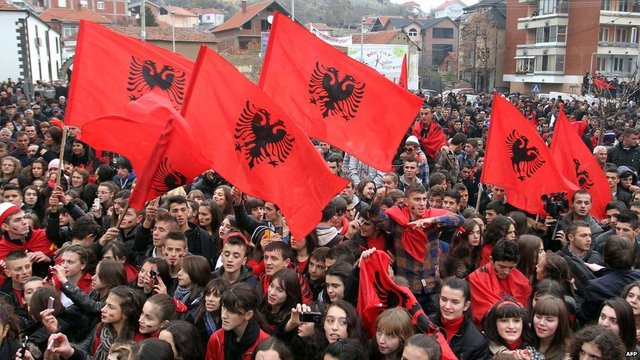
Source
Introduction
The country of Kosovo has been beset with tension for hundreds of years being claimed by several surrounding countries and the dissolution of Yugoslavia. The two biggest contenders are the Albanians in Kosovo and Serbia have been fighting for the land. The war brought not just international attention to the war crimes committed by both sides but proved that the two countries had years to go before coming to a solution and be settled. country of Kosovo has been beset with tension for hundreds of years being claimed by several surrounding countries and the dissolution of Yugoslavia. The two biggest contenders are the Albanians in Kosovo and Serbia have been fighting for the land. The war brought not just international attention to the war crimes committed by both sides but proved that the two countries had years to go before coming to a solution and be settled. Kosovo is a landlocked in the central Balkan Peninsula with its tactical location in the Balkans, it serves as an important connection between central and southern Europe, the Adriatic Sea, and Black Sea. The tension centers on the history of Kosovo itself, an area between Serbia and Albania which the inhabitants are ethnic Albanians. Kosovo enjoyed much sovereignty with Serbia until on the year of 1989 when the province status was cancelled bringing it as an under control of Belgrade; capital of Serbia which leads to a series of conflicts and massive killings. Majority of the people who lived in Kosovo is Kosovar Albanians who is 90 percent of the population, which is also the name of their country Kosovo came from their mother tongue which is Kosova.
Also one of the big factors of the conflict is the dissolution of Czechoslovakia and Yugoslavia which resulted to the divisions of land that created an ethnic homogenous state that would later strain the political aspects of this countries also after World War II, Kosovo's present-day boundaries were established when Kosovo became an autonomous province of Serbia.with its tactical location in the Balkans, it serves as an important connection between central and southern Europe, the Adriatic Sea, and Black Sea. The tension centres on the history of Kosovo itself, an area between Serbia and Albania which the inhabitants are ethnic Albanians. Kosovo enjoyed much sovereignty with Serbia until on the year of 1989 when the province status was cancelled bringing it as an under control of Belgrade; capital of Serbia which leads to a series of conflicts and massive killings. Majority of the people who lived in Kosovo is Kosovar Albanians who is 90 percent of the population, which is also the name of their country Kosovo came from their mother tongue which is Kosova. Also one of the big factors of the conflict is the dissolution of Czechoslovakia and Yugoslavia which resulted to the divisions of land that created an ethnic homogenous state that would later strain the political aspects of this countries also after World War II, Kosovo's present-day boundaries were established when Kosovo became an autonomous province of Serbia.
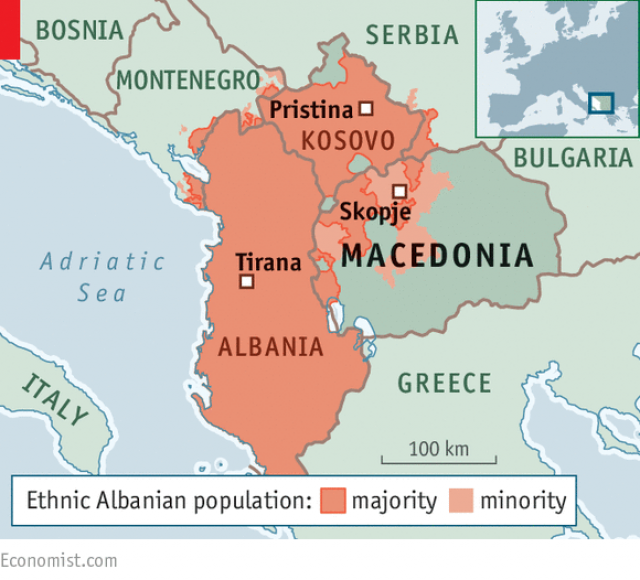
Source
Body
In order to understand the deeper context of the conflict between Serbia and Albania, it is a must to trace back and dug deeper the history of Kosovo which dated back on the Palaeolithic age which act for the vinca, a Neolithic culture in Serbia which a population of boom and producing some of the largest settlements in prehistoric Europe and the starcevo culture which shows the earliest settlement farming in the area, although hunting inclusion of gathering still provided a significant portion of the inhabitants diet. It is also inhabited by the Illyrian-Dardanian, which is the most evident that they are an ancestors of the Albanians, and assertions such as the following are made for this that the Illyrians had special customs, similar to those of the Albanians of today, Illyrian hospitality can be compared to the hospitality offered to guests by the Albanians of today’.
The Illyrians are thus presented as the real ancestors of the Albanians and as a indigenous in the Balkan lands, once it was inhabited by them across the territory of the former Yugoslavia, it is already established that it is an idea of the continuity on this land of Albanians. By 168 BC, the area is annexed by the Romans until they were conquered by the Byzantine Empire and the Bulgarian Empire. On 1389, the battle of Kosovo marked the medieval period of the History of Kosovo and his country was the core of the Serbian medieval state, which has also been the seat of the Serbian Orthodox Church from the 14th century.
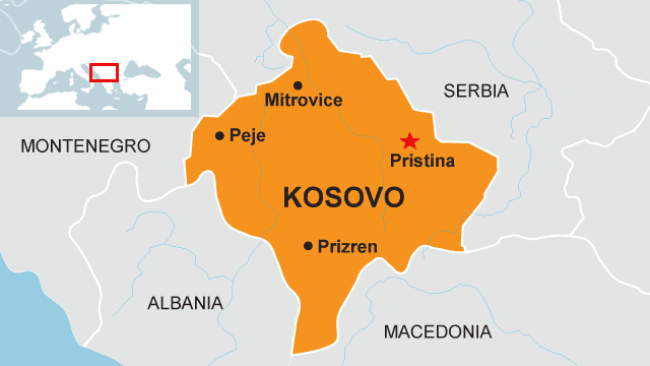
Source
By the 19th century, Kosovo became the role model for nationalism inclusion of their defeat of the Balkan Wars. The Ottoman Empire concedes the Kosovo to Serbia and Montenegro which both countries joined the Yugoslavia and a period. Albanian nationalism increased especially in the 1980s for which it led to many riots and wants to assert the Kosovo's independence. Kosovo was very important to Yugoslavia in terms in the economic and military aspect for it serve as a buffer state; its strategic position which easily connects to other country was becoming a factor and the Kosovo economic values like the mines, chemical factories and electric power plants. Tensions between Kosovo's Albanian and Serb communities simmered through occasionally erupted into major violence, culminating in the Kosovo War of 1998 and 1999, which resulted in withdrawal of Serbian armed force. It also led to the establishment of the United Nations Interim Administration Mission in Kosovo.On 17 February 2008, Kosovo unilaterally declared its independence from Serbia. It has since then gained a diplomatic recognition as a sovereign state by 113 UN member states but many countries does not recognized them as a country. Serbia refuses to recognize Kosovo as a state which is evident that the conflict is still brewing and it has not been solved for the better good. It is a hidden burden that will soon burst out and bring a lot of chaos. Even thought Kosovo became an independent state, still a lot of countries doesn’t agree or support this for it causes war and an example of province of a state that would want to be independent. The example of this is the country of China, who ought to never recognize Kosovo as an independent state because if they do, Hongkong and Taiwan will surely push through as an independent state. Kosovo will somehow be a role model for them. Serbia and the Kosovar Albanians pursued their antagonistic objectives with unequal forces and means and employed those using divergent, uneven tactics and strategy.
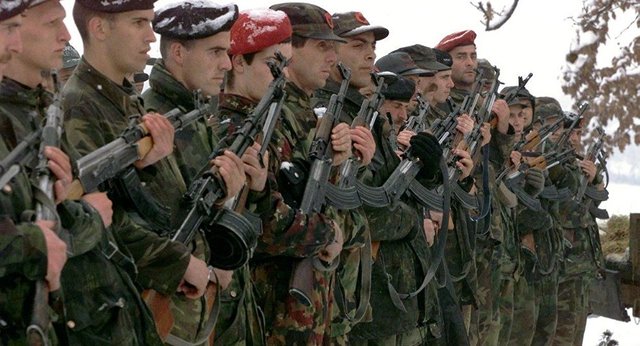
Source
On the side of Serbia, they don’t want Kosovo to be an independent state for they believe that it is still a province of Serbia. They somehow conducted a campaign which resulted to massacres and massive explosions to the ethnic Albanians of Kosovo which is commonly known as the Kosovo war. They strongly disagree about Kosovo’s Independence, and don’t want to take part with Kosovo directly for they view them as the enemy. Kosovo just want to be merely independent for they do not have enough support of the government, and somehow there were being maltreated. There are a lot of factors that can be concluded and is in needed to be concluded.
Inequality is very rampant among the Kosovar Albanians who lived in Kosovo, especially in the Presevo Valley which almost of the population living there is kosovar Albanians. Presevo Valley gained attention due to the insurgency in 2000 which is very evident on how Serbian treated kosovar Albanians. They were somehow treated poorly and badly. Example of Albanian grievances was the issues on weak presence in the public sector, high unemployment, and limited implementation of their language rights and the lack of economic development. A research entitled the social functioning and attitude of Kosovar Albanians Following the War in Kosovo concluded that Respondents was reported a high relevance of traumatic events, especially in the urban poor which could be targeted easily, it indicates that the Serb forces engaged in a systematic and brutal campaign to forcibly expel the ethnic Albanian population of Kosovo throughout the province. It includes killings, beatings, torture, sexual assault, separation and disappearances, shootings, looting and destruction of property, and violations of medical neutrality. These abuses where somehow traumatic and violating the law but is not addressed properly to be an ethnic Albanian in Kosovo was vulnerable. It just does not represent the abuses but a need for justice because it really does cost mental health problems to the kosovar Albanians. In an interview an ethnic Albanian was interviewed a 76-year-old male farmer from Agarevc, described the events in his village that the Serbian police made an announcement that they should leave there village immediately they told him that
Conclusion
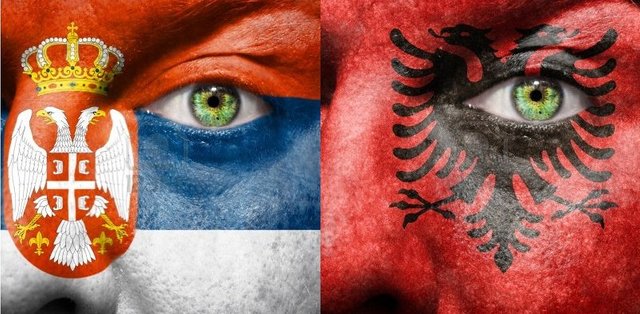
Source
“Albania is your country, and you have to go there.’ The bombing continued for three days. The police and soldiers came to the house where he was staying and told him that they had to leave in five minutes. They cursed at them and said ‘Fuck your Albanian mother. These expulsions were terrible and discrimination was everywhere for the Albanians living in Kosovo, disruption caused to the society were so profound that Kosovo Albanians organized a series of civic structures, notably in terms of primary health care and education. It is very evident to the point it is very concerning. Kosovar Albanian refugees were forcibly expelled from their homes as part of a Serb effort to “ethnically cleanse” Kosovo. Serbian efforts to systematically remove members of this ethnic group is evidenced by the fact that nearly all of the respondents 91% were either directly expelled by Serb forces, or left Kosovo because of a well-founded fear of the Serbian violence. Unification with Serbia involved a range of measures even before made by Kosovo Albanians since 1966 like the one official language which is the Serbo-Croatian; street names changed; Albanian statues and monuments taken down, and figures from Serbian history or mythology erected in their place; shops ordered to have signs in Cyrillic; the reinstatement of ‘Kosovo and Metohija’ as the territory’s official name; reversion to the derogatory Sˇiptar to refer to Albanians such changes of the symbolic level were a way of saying to Kosovo Albanians: ‘
'This is not your home, this is part of Serbia.’ In conclusion, even though they were impacted in social aspect the most they were somehow able to show their nationalism out of this like the emerging of KLA or Kosovo Liberation Army, which has been presented as a completely justified organization established to defend the helpless masses of Kosovar Albanians in Kosovo against the ruthless Serbia. The ethnic Kosovar Albanians of Kosovo have been primarily and mostly described as the main victims of Serbian aggression, completely innocent but in spite of that they were able to push through their independence. It’s a long process but it is already a step that they are making. Even not all of the countries recognized their independency. The Kosovo Liberation Army not only generates support and shows the government's actions of today, but also criticizes an entire nationality and glorifies another for tomorrow and the years to come. The role of Inequity push them so hard that they were able defend the lands especially their ethnicity, the identity they treasured the most.
Bibliography
Ingrao,W.: Cohen, G., Confronting the Yugoslavia Controversies(2009).Purdue University Press. United States.
Gashi, Shekelzen., The History of Kosovo (2016). Alter Habitus. Netherlands.
Latawski,M:Smith,M., The Kosovo Crisis and the evolution of post cold war European Security. (2003) Manchester University Press.
War Crimes in Kosovo (1999). Physicians for Human Rights. Washington, United States of America.
Clark Howard., The Civil Resistance in Kosovo(2000). Pluto Press. London, England.
Assessment of the Situation of Ethnic Minorities in Kosovo. UNHCR. OSCE.
Beata Huszka. The Presevo Valley of Southern Serbia alongside Kosovo(2007). Centre of European Policy Studies. Brussels Belgium
Vergara,A.The Social Functioning and Attitude of Kosovar Albanians Following the War in Kosovo(2000). American Medical Association
[1] Gashi, Shekelzen., The History of Kosovo (2016). Alter Habitus. Netherlands
[2] Ibd.,p 78
[3] Clark Howard., The Civil Resistance in Kosovo(2000). Pluto Press. London, England.
[4] Ingrao,W.: Cohen, G., Confronting the Yugoslavia Controversies(2009).Purdue University Press. United States.
[5] Ibd.,p.343
[6] Ibd.,p vii
[7] Beata Huszka. The Presevo Valley of Southern Serbia alongside Kosovo(2007). Centre of European Policy Studies. Brussels Belgium
[8] Vergara,A.The Social Functioning and Attitude of Kosovar Albanians Following the War in Kosovo(2000). American Medical Association
[10] Ibd.,p89
[11] Assessment of the Situation of Ethnic Minorities in Kosovo. UNHCR. OSCE.
[12] Ibd., p49
Posted from my blog with SteemPress : http://zam398.vornix.blog/2018/08/03/historical-essay-the-serbian-albanian-ethnic-conflict-in-kosovo-social-impact-and-role-of-inequity-among-kosovar-albanians/